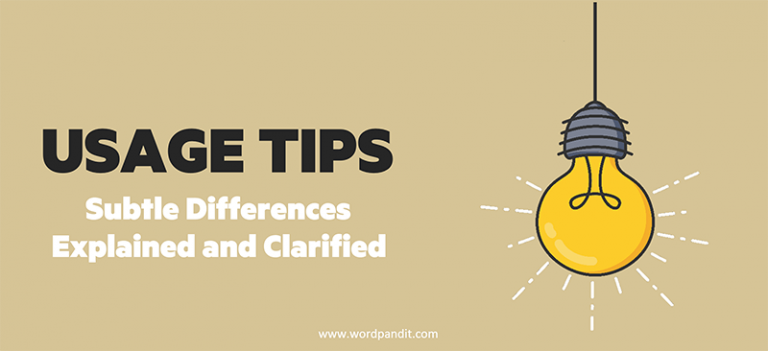Dudgeon vs. Dungeon: A Tale of Misunderstanding 🔍🤔
Have you ever found yourself in a bit of a dudgeon when someone spoke of dungeons? 😠🏰 It’s easy to see why these two words get mixed up—they sound alike, and both carry a sense of intensity, though in quite different ways. Let’s sort out the confusion so you never mistake the two again. By the end, you’ll know whether it’s a fit of indignation or a dark medieval cell you’re dealing with. 🏰⚡
The difference between these words might not seem important at first glance, but using the right term at the right time can make a world of difference in effective communication. Imagine expressing a powerful emotion, only to be mistaken for talking about a prison cell! The more we understand these subtle distinctions, the better we can convey our thoughts with precision and impact.
Dudgeon: A Mood, Not a Place 😡
Definition: Dudgeon is a feeling of offense or deep resentment. Imagine a time when someone made a rude remark, and you were left fuming—you were in a dudgeon. 😤 This term is all about emotions—strong, often negative ones that come from feeling mistreated or overlooked.
Pronunciation: DUH-juhn 🔊 It’s important to emphasize the “DUH” sound to make sure you get it right, as mispronunciation might lead to confusion with its similar-sounding counterpart.
Etymology: The origins of dudgeon are a bit murky, but it likely emerged from an Old French word meaning “dagger.” 🗡️ This makes sense, as the word conjures up imagery of sharp feelings and simmering anger. Just like a dagger can pierce, dudgeon can represent sharp emotions that pierce through one’s composure.
Usage Example: “After being overlooked for the promotion, Sarah left the meeting in high dudgeon, her temper barely restrained.” 😠💼 Imagine Sarah storming out, her face flushed with anger and her hands clenched tightly—it’s a vivid picture of someone truly in a dudgeon.
Synonyms & Antonyms:
- Synonyms: resentment, indignation, irritation 😒 These words all convey a similar sense of being offended or upset.
- Antonyms: contentment, satisfaction, acceptance 😊 Picture someone smiling, calm, and collected—completely the opposite of being in a dudgeon.
Dungeon: A Place, Not a Mood 🏰
Definition: Dungeon refers to a dark, underground prison cell, often found in castles. It’s where prisoners were kept, sometimes in the harshest conditions. 🔒 Dungeons are usually depicted as cold, damp, and quite intimidating, with stone walls and minimal light.
Pronunciation: DUN-juhn 🔊 The “DUN” sound is crucial here, emphasizing the heavy and dark imagery associated with a dungeon.
Etymology: Dungeon comes from the Old French word “donjon,” originally meaning a keep or tower within a castle. Over time, the term became associated with the darkest part of the keep—a place for prisoners. 🏰🔦 It’s interesting how language evolves, and in this case, a word that once represented a stronghold has transformed into something synonymous with confinement and despair.
Usage Example: “The captured knight was thrown into the castle’s dungeon, the damp walls echoing with the sounds of despair.” ⚔️😔 Imagine the chilling atmosphere—the knight chained to the wall, his breath visible in the cold air, surrounded by darkness. That’s the essence of a dungeon.
Synonyms & Antonyms:
- Synonyms: cell, prison, oubliette 🚪 These terms all convey a sense of confinement and restriction.
- Antonyms: freedom, liberty, release 🕊️ Imagine stepping out into the sunlight, feeling the breeze—completely opposite of being locked away in a dungeon.
How to Tell Them Apart
Here’s where it gets fun—imagine a person in a dudgeon because they were unfairly thrown into a dungeon. 😡🏰 Dudgeon is all about emotion, specifically indignation or resentment, while dungeon is a physical place, usually cold, dark, and rather unpleasant. 💔⚠️ One is internal—a storm of feelings—while the other is external—a grim, physical reality.
To make it even clearer, think of dudgeon as an invisible force, something that affects your mood and attitude. On the other hand, dungeon is a tangible space that you can see, touch, and definitely want to avoid being in.
Mnemonic Device 🧠💡
To remember the difference:
- Dudgeon sounds like “grudge”—both deal with negative emotions. 😠 When you’re in a dudgeon, you might be holding a grudge.
- Dungeon has “gun” in it—imagine guards with guns keeping prisoners in a dungeon. 🔫🏰 This imagery can help solidify the idea of a dungeon being a secure, guarded place.
Using Both in Context
“In a fit of dudgeon, the disgraced lord was led to the dungeon, swearing revenge on his captors.” 😡🏰⚔️ Picture the scene—the lord, red-faced and angry, being dragged through the castle halls to the dungeon below. His emotions are raging (dudgeon), while the reality he faces is dark and physical (dungeon).
Related Confusing Pairs 🔄
If you enjoyed clarifying this pair, you might also want to explore:
- Abjure vs. Adjure: One means to reject; the other means to urge earnestly. ❌🙏 It’s easy to mix these up, but understanding the subtle differences can make your communication much more precise.
- Elicit vs. Illicit: One means to draw out; the other means unlawful. 📢🚫 Knowing the distinction can prevent some embarrassing mix-ups in both writing and conversation.
Summary 📝
So there you have it! Dudgeon is all about an emotional storm 🌩️, while dungeon is a physical, confining space 🏰. Keep the imagery of resentment versus imprisonment in mind, and you’ll never confuse the two again. 👍 Remember, one is invisible—a feeling that consumes you—while the other is a real, often frightening place. Understanding these nuances makes your language richer and more impactful.













